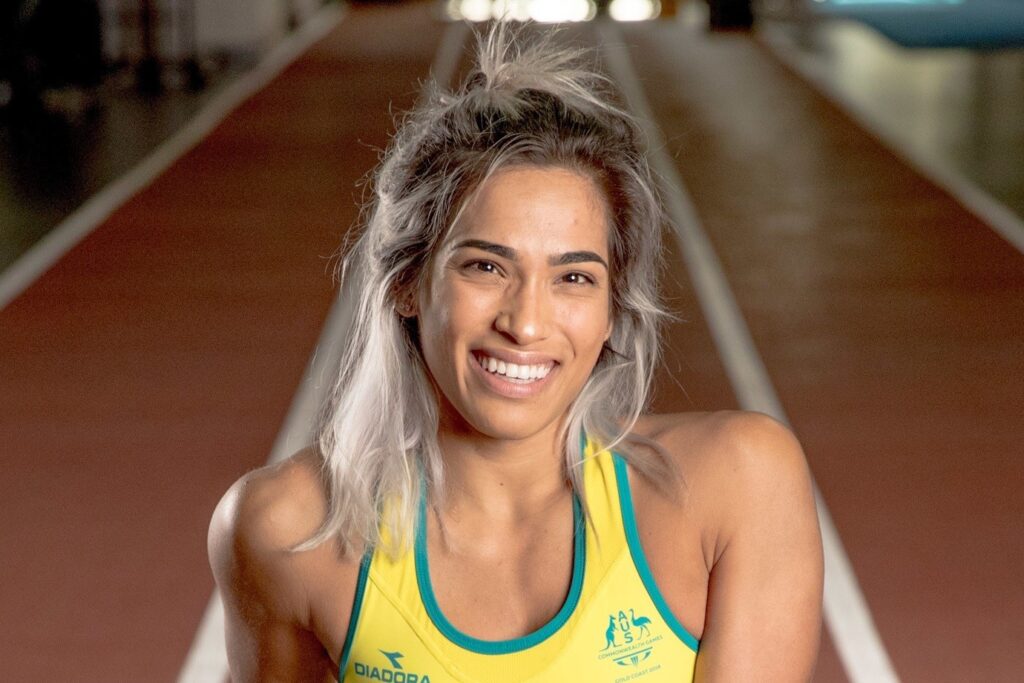One of Australia’s greatest athletes Madison de Rozario began wheelchair racing in 2006, at the age of 12, and was just 15 years old when she made her international athletic debut.
“I think my family was so shocked when sport became my career,” de Rozario tells Women’s Agenda.
“I wasn’t very competitive, and I wasn’t fiery or aggressive. I didn’t do the things that we expect people to do when they are good at sport.”
Reflecting on this disconnect as a woman with a disability who’s gone on to be incredibly successful in sport, de Rozario says that society still hold an idea of sport that is “just not realistic for most of us”.
Often, personality traits typically associated with male pro athletes – fierceness, arrogance and aggression– are encouraged in sport from a very young age. And yet, for young girls who might hold similar personality traits to de Rozario, these kinds of stereotypes can open up questions of whether or not they belong in sport.
New research from Allianz has revealed that a quarter of young Australians have made the decision to stop playing by age 15. And children with a disability are likely to stop playing even earlier, as data shows 50 per cent have decided to stop playing sports altogether by the age of 11.
“I think an enormous reason we lose so many girls through sport is [that] it’s almost an identity crisis, where you don’t get to see yourself represented,” says de Rozario, noting that, as a woman, it’s often the case that in the hours spent outside of sport “you’re vilified for the exact same things that are demanded of you when you’re out on the field, when you’re on the track and in the pool”.
However, the direction that women’s sport is moving at the moment is leaving de Rozario feeling very optimistic.
“We’re now seeing, for the first time in my career, really gentle women at the centre [of sport],” she says.
“We’re seeing really multifaceted women who are strong in the fields, but they’re also soft, and they’re kind and they’re honest, and they’re open and they’re not qualities that we’ve associated with sport before. But they are qualities associated with girlhood and womanhood and femininity.”
Contributing heavily to the strength of women’s sport today, de Rozario is preparing to compete for her fifth Paralympic campaign in Paris, having already contested Beijing 2008, London 2012, Rio 2016 and the Tokyo Games.
In September last year, de Rozario also won the Sydney Marathon and says she plans to return this year as the event bids to become the seventh major marathon of the world.
Her list of achievements is long and ever growing. And throughout it all, she says one of the greatest things sport has taught her is respect for herself.
“That is not something that I think many girls have growing up. It’s not something a lot of kids have. And it’s not something that a lot of people with disabilities have– there is very little autonomy, your identity is often wrapped up in either being a girl or being a person with disability– you don’t get to be anything else other than that,” de Rozario says.
“Whereas, I think sport takes such a huge part of your identity and time, and it gives so much to it. You have to restructure how you feel about yourself.”
While she’s incredibly proud of all aspects of her identity, she says it’s a relief to be able to put her energy into sport.
“You get to take up a lot of space– as anyone playing sports activity anywhere– you have to be really in tune with your own body, and you can be really present with it,” she says, adding that it’s “really important for young people to have this autonomy and this respect for [their] physical self”.
The Allianz research found that when it comes to motivating children to stay in out-of-school sport, being cheered on when they play (88 per cent), receiving positive words of affirmation (88 per cent) and feeling that their support network is proud of them (88 per cent) are the top motivators.
“When we talk about keeping kids in sport, we talk so much about creating pathways and access to sport, and basically creating the structures around them that allow them to stay in it,” says de Rozario.
And while that’s incredibly important, she says it’s also essential to invite a fire in them to really want to play sport long-term, as she knows firsthand that “you can’t go into sport, just purely wanting the glory of it.”
“I have lost more races than I’ve won, and I’ve had to deal with that humbling experience.”
And yet, she says wholeheartedly that the journey of an athlete is “worth it”.
“When we set really lofty goals, the person that’s going to be able to achieve those goals is going to be somebody worth being proud of.”
“In the pursuit of that dream, in the pursuit of that goal, we have to slowly become a person that the younger us is going to be so proud of.”


